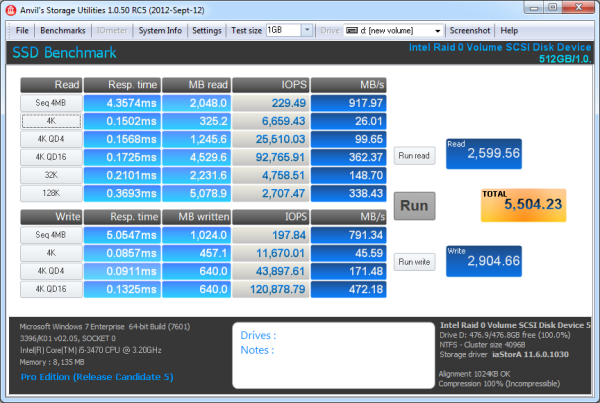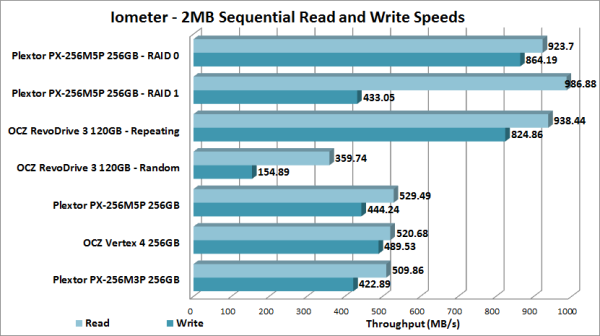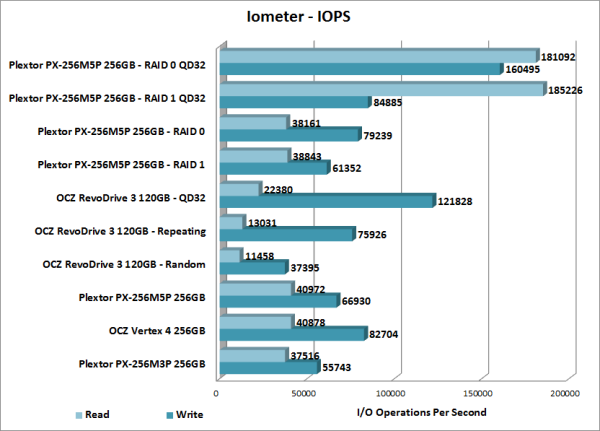Anvil's Storage Utilities:
Anvil's Storage Utilities is another new benchmark designed with SSDs in mind. The standard storage benchmark measures a drive's performance by testing its transfer speeds, access times and IOPS.

Plextor PX-256M5P - RAID 0

Plextor PX-256M5P - RAID 1
Iometer:
Lastly, I ran a series of tests using Iometer. This tool can be configured to benchmark a number of things. In this case, I used it to measure the PX-256M5P's read and write speeds and the number of operations per second. The tests were run using random bytes and a queue depth of 3 and then again at a queue depth of 32.

The PX-256M5P's sequential read and write performance was very similar to what we saw in our other tests. When configured as a RAID 0 array, the two drives were able to read at 923.7 MB/s and write at 864.19 MB/s. The read speed was a bit higher with RAID 1. However, the write speed dropped to 433.05 MB/s, which is slower than what we saw with a single PX-256M5P.

At low queue depths, neither RAID configuration really added much to the PX-256M5P's performance. The only real improvement was when doing random writes using RAID 0. At higher queue depths though, it was a totally different story. When configured as a RAID 0 array, the two drives were able to write at 626.93 MB/s and read at a blazing 707.96 MB/s.

At high queue depths, the number of IOPS a pair of PX-256M5P's is capable of is down right ridiculous. When configured as a RAID 0 array, two drives reached 181,092 random read IOPS and 160,495 random write IOPS.
Final Thoughts:
Plextor's M5 Pro Series SSD is impressive by itself but when two or more are combined in a RAID array, the performance is nothing short of amazing. Using a pair of PX-256M5P's and an off the shelf, Ivy Bridge-based PC, I was able to read at speeds as high as 1,066 MB/s and write at speeds in excess of 825 MB/s. The two drives also did very well in our random write tests, producing more than 160,000 IOPS at high queue depths. That being said, there were a few cases where RAID was slower than a single drive so you'll need to look at your intended usage and see if its worth trading a bit of performance for things like redundancy.
One thing I really didn't touch on much in this article is TRIM support in RAID. While the function is supported on Intel's 7 series chipsets, it is limited to RAID 0 and you must use the company's RST (Rapid Storage Technology ) RAID driver to get it to work. If you plan on using a different flavor of RAID or a different controller, you will need to find another way to maintain optimal performance. Thankfully, Plextor's M5 Pro doesn't rely solely on TRIM to do this. The drive also uses technologies like Instant Restore, Global Wear Leveling and Bad Block Management to maintain original performance levels, even after intensive use and long periods of operation.
The M5 Pro Series is available now in 128GB, 256GB and 512GB capacities. Prices on Amazon currently range from $132 up to $455, with the PX-256M5P featured here going for about $299.

